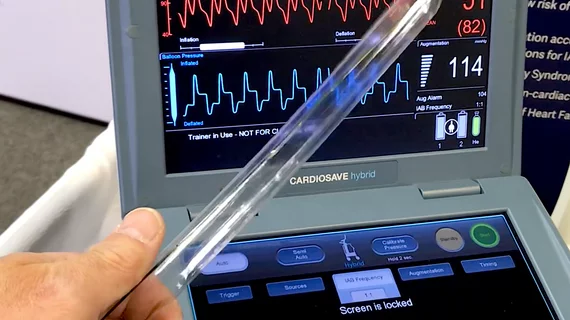The U.S. Food and Drug Administration (FDA) is warning health systems and healthcare providers that supply chain issues have resulted in a new shortage of certain Getinge/Maquet/Datascope intra-aortic balloon pumps (IABPs) and intra-aortic balloon (IAB) catheters. The shortage also includes spare parts related to those devices.
The FDA is recommending that any customers currently using these devices review Getinge’s shortage notification letter and, if possible, reach out to Getinge about sharing any extra IABPs or IAB catheters with hospitals in need.
It is not yet clear when the shortage may be over.
“The production team is continuously improving output in addition to improving our processes to avoid future disruptions,” according to the Getinge letter. “However, due to the persistently high volatility in our global supply chain, we are not in a position to provide dates for when these items will return to normal production.”
Gettinge also provided updated recommendations for maintenance of its Cardiosave Hybrid and Rescue IABPs and Cardiosave batteries. Additional recommendations detail ways a customer can ensure they “obtain optimum battery performance and expected battery life.”
The FDA noted that these devices have been added to its medical device shortage list.
“The FDA continues to monitor the current situation and will keep healthcare facilities, providers and the public informed if significant new information becomes available,” the agency wrote.

